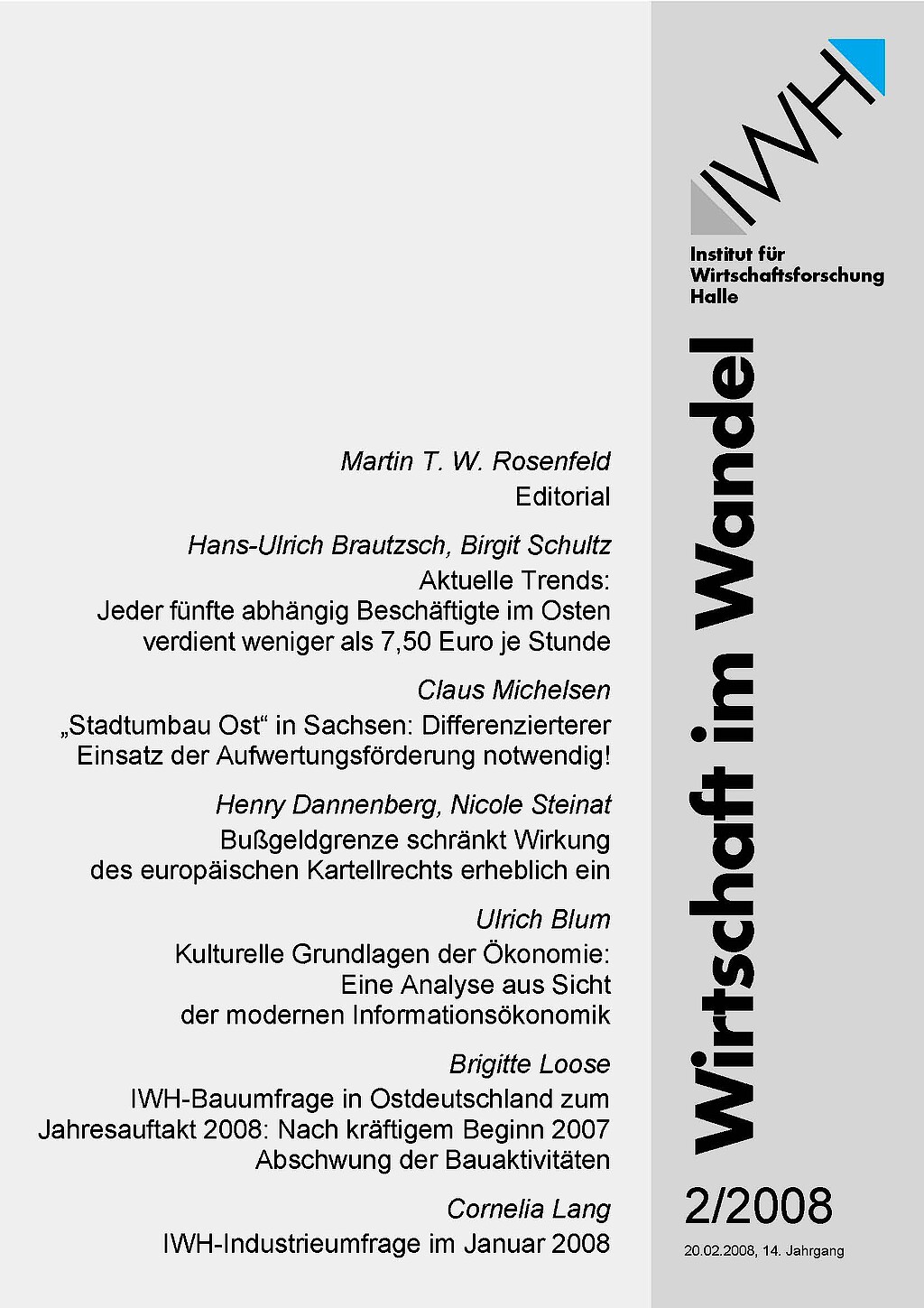
The Maximum Level of Fines Restricts the Effect of European Competition Law
Die im Jahr 2006 reformierten und ab diesem Jahr zur Anwendung kommenden Leitlinien zur Bußgeldberechnung von Kartellverstößen im europäischen Wirtschaftsraum sollen den Anreiz zur Kartellbildung für Unternehmen senken und die Wahrscheinlichkeit einer Kartellaufdeckung erhöhen. In diesem Artikel wird beleuchtet, wie die Entscheidung für oder wider eine Kartellbeteiligung seitens der Unternehmen durch diese Leitlinien beeinflußt wird. Es kann gezeigt werden, daß durch die Festlegung einer Bußgeldobergrenze eine wirksame Abschreckung nur für Unternehmen zu erwarten ist, die einen geringen Anteil ihres Umsatzes im kartellrechtlich relevanten Markt erzielen. Für diese steigt zunächst mit zunehmender Kartellebensdauer der Anreiz, das Kartell anzuzeigen. Das führt dazu, daß Kartelle mit mindestens einem Unternehmen, das einen geringen Anteil seines Gesamtumsatzes auf dem Kartellmarkt erzielt, bis zu einem bestimmten Zeitpunkt im Zeitverlauf instabiler werden. Unternehmen, die ihren Umsatz jedoch fast ausschließlich auf diesem Markt erzielen, werden durch die neue Leitlinie aufgrund der Bußgeldobergrenze hingegen kaum abgeschreckt. Der Artikel gibt einen kurzen Überblick über das „Kartellrechtsrisiko“, wie es sich für Unternehmen darstellt. Es wird erläutert, wie die mit einer möglichen Kartellstrafe verbundenen Aufwendungen ermittelt werden können. Darauf basierend werden die notwendigen Mindestumsatzrenditen bestimmt, die von Unternehmen im Kartell erwirtschaftet werden müssen, damit sich aus Unternehmenssicht eine Kartellbildung rechnen könnte. Es wird gezeigt, daß für bestimmte Kartelle bereits Renditen von wenigen Prozentpunkten genügen, um eine Kartellteilnahme attraktiv werden zu lassen.




